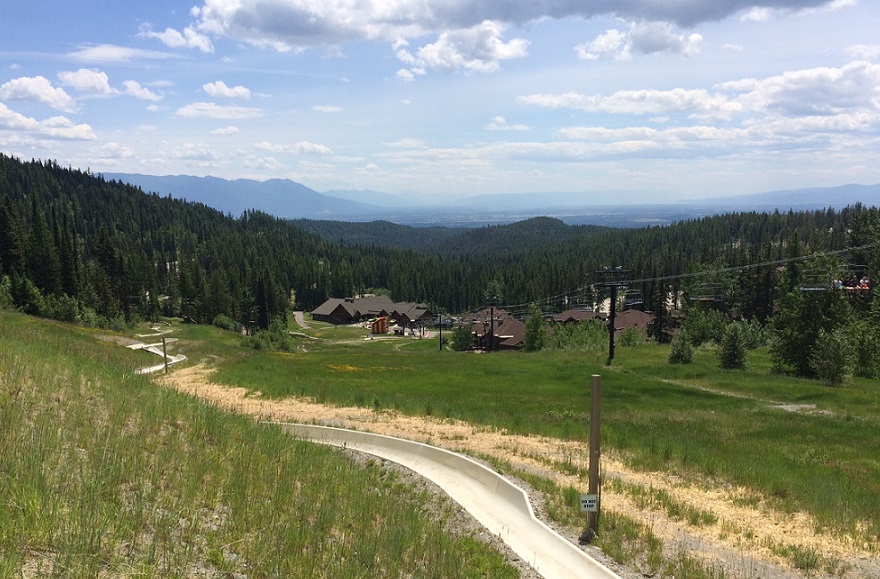The glaciers are melting!
That was the distress call that prompted my family and I to schlep across the country in June to see the wonders of Glacier National Park before the snow is all gone.
I had some trepidation about traveling with family members who can’t really hike, but the park’s roadside attractions alone made the trip worthwhile – and are why Glacier is a hugely popular destination for families and seniors.
READ: Rabbi quits N.J. pulpit, finds God and community in Montana
The famed Going-to-the-Sun Road, which crisscrosses the park and has some incredibly frightening switchbacks, is often cited as one of the country’s most spectacular, featuring snow-capped peaks, towering waterfalls, stunningly blue glacier-fed lakes, magnificent mountain vistas and wildlife ranging from grizzly bears to bighorn sheep.
The road’s apex, Logan Pass at elevation 6,646 feet, marks the continental divide; snowmelt on the east side flows to the Atlantic Ocean, on the west to the Pacific Ocean. The road opens only in June because the snow is usually too deep to plow it any earlier. But even in July there’s enough left to draw sled-toting visitors in snow pants and short sleeves. The 1.5-mile hike to Hidden Lake at Logan Pass is one of the park’s most popular trails.
Among the other highlights in the 1-million-acre park for those with limited hiking abilities: the boat tour at picturesque Saint Mary Lake, the Trail of the Cedars walk and Avalanche Lake, and just outside the park there are whitewater rafting and helicopter tours on offer.
Though the park is famous for its glaciers – it had more than 100 at the turn of the 20th century and now is down to about 25 – be forewarned: This is not Alaska. You’re not going to see heaving glaciers floating in the water like icebergs. These glaciers look more like snowcaps.
We ended up in Whitefish mostly by chance: It’s the nicest, closest place to stay near Glacier (about 45 minutes away), and the house we rented at Whitefish Mountain Resort, the 3,000-acre ski mountain that towers over the town, was by far the best deal we could find.
Though we came to Montana for the park, we found plenty to do right in our backyard. The ski resort has a sightseeing gondola that whisks visitors to the peak of the 6,817-foot mountain for stunning views of northwest Montana, including more than a dozen glaciered peaks, and plenty of trailheads for hiking and mountain biking. The summit also has a nature center with an exhibit on animal scat – basically, plastic molds of bear, elk and coyote poop – that was particularly popular among the kids.
Farther down the mountain, within walking distance of our house, there were zip-line courses, an alpine slide with no minimum age requirement, a climbing tower for kids and an aerial adventure park with obstacle courses suspended in the trees — including cable walkways, trapezes and other challenging traverses. The mountain seems to draw visitors of all ages: teens in head-to-toe protective gear and mud-splatted mountain bikes, Baby Bjorn-clad dads lining up for the alpine slide, well-tanned seniors watching from the free chairlift that runs between the varying activities.
The town itself is a quaint few blocks with cute little shops and eateries, including the delectable Sweet Peaks ice cream shop (try the huckleberry!). There’s also a nice beach at pristine Whitefish Lake with boat rentals available.
The closest airport is in Kalispell, about 20 miles away.
JTA has documented Jewish history in real-time for over a century. Keep our journalism strong by joining us in supporting independent, award-winning reporting.






